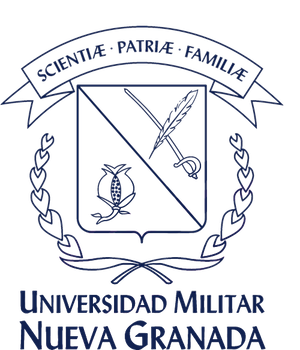Educational video games: theories and proposals for group learning
Abstract
This paper presents the usage of multiplayer video games introducing collaborative activities as an educational tool in line with the digital age we are currently living as well as the basis underpinning this proposal. Such applications, called vgscl (Video Games – Supported Collaborative Learning) are intended to obtain the benefits derived from the three milestones on which they are based: usage of video games as an appealing and motivating tool for a big school-age population, the implicit learning of concepts hidden in the game challenges and activities, besides the application of collaborative learning techniques that allow students to develop their social skills as they learn and get a more effective learning.
Downloads
Languages:
esReferences
Aguayos Rausa J., Almazán L., Bernat A., Campos F., Cárdenas J.J., Vilella X., y Gros Salvat B., (2000). Un espacio para la simbiosis. En: Cuadernos de Pedagogía. Vol. 291, pp. 66-69.
Anacleto J.C., Villena J.M.R., Silva M.A.R., and Fels S., (2010). Culturally sensitive computer support for creative co-authorship of a sex education game. En: Yang H. S., Malaka R., Hoshino J., Han J. H., (eds.) Entertainment Computing–ICEC 2010. LNCS, Vol. 62 (43), pp. 302-307, Springer, Heidelberg. http://dx.doi.org/10.1007/978-3-642-15399-0_31
BOE 20. Centros TIC (2007). En: http://www.boe.es/boe/dias/2008/01/23/pdfs/A04467-04501.pdf (mayo de 2012).
BOE 188. Escuela 2.0 (2009). En: http://www.boe.es/boe/dias/2009/08/05/pdfs/BOE-A-2009-13026.pdf (mayo de 2012).
Carro R., Breda A.M., Castillo G., y Bajuelos A.L., (2002). Generación de juegos educativos adaptativos. En: III Congreso Internacional de Interacción Persona-Ordenador. pp. 1664-171.
Ceranoglu T.A., (2010). Video games in psychotherapy. Review of General Psychology. Vol. 14 (2), pp.141-146. http://dx.doi.org/10.1037/a0019439
Collazos C.A., Guerrero L., y Vergara A., (2001). Aprendizaje colaborativo: Un cambio en el rol del profesor. Proceedings of the 3rd Workshop on Education on Computing, Arenas, Chile.
Collazos C.A., Ochoa S.F., y Mendoza J., (2007). La evaluación colaborativa como mecanismo de mejora de los procesos de evaluación del aprendizaje en un aula de clase. Revista Ingeniería e Investigación, Vol. 27 (2), pp.72-76.
García Fernández F. (2005). Videojuegos: Un análisis desde el punto de vista educativo. En: http://www.irabia.org/departamentos/nntt/proyectos/futura/futura06/Analisis_educativo.pdf (mayo de 2012).
Gros B., (2000). La dimensión socioeducativa de los videojuegos. Edutec-e: Revista Electrónica De Tecnología Educativa, Vol.12.
Felicia P., (2009). Videojuegos en el aula. Manual para docentes. Bélgica, European school net, 46 p.
Ferguson C.J., (2010). ¿Blazing angels or resident evil? ¿Can violent video games be a force for good? Review of General Psychology, Vol. 14 (2), pp. 68-81. http://dx.doi.org/10.1037/a0018941
Jonhson D.W., y Jonhson R.T., (1994). Learning together. En: S. Sharan (Ed.), Handbook of cooperative learning methods. Connecticut: Greenwood Press.
Jonhson D.W., y Jonhson R.T., (1998). Cooperative learning and social interdependence theory. En: Tindale R., Heath L., Edwards J., Posavac E., Bryant F., Suzrez-Balcazar Y., Henderson-King E. & Myers J. (Eds.). Theory and research on small groups. pp. 9-36. New York: Plenum.
Lepper M.R., and Malone T.W. (1987). Intrinsic motivation and instructional effectiveness in computer-based education. En: R. E. Snow, & M. J. Farr (Eds.), Aptitude, learning, and instruction: III. Cognitive and affective process analysis. pp. 255-286. Hillsdale, New Jersey: Erlbaum.
McFarlane A., Sparrowhawk A., and Heald Y., (2002). Report on the educational use of games: An exploration by TEEM of the contribution which games can make to the education process. Consultado en mayo de 2012. En: http://www.mendeley.com/research/report-on-the-educational-use-of-games-an-exploration-by-teem-of-the-contribution-which-games-can-make-to-the-education-process/
Méndiz A., Pindado J., Ruíz J., y Pulido J. M., (2002). Videojuegos y educación: Una revisión crítica de la investigación y la reflexión sobre la materia. Ministerio de Educación y Ciencia de Espa-a. En: http://ares.cnice.mec.es/informes/02/documentos/indice.htm (mayo de 2012).
Mendoza Barros P., and Galvis Panqueva A., (1998). Juegos Multiplayer: Juegos colaborativos para la educatión. En: Informática Educativa, Santafé de Bogotá: UNIANDES - LIDIE, Vol. 11 (2), pp. 223-239.
Padilla N., Rodríguez F.J., Cabrera M., and Morales J., (2010). Using the ACOLEP-MD architecture: Application to Edutainment. Procedia Social and Behavioural Sciences Journal, Vol. 2 (2), pp. 2197-2201. http://dx.doi.org/10.1016/j.sbspro.2010.03.307
Prensky M., (2001). Digital natives, digital immigrants. En: On the Horizon Vol. 9 (5), NCB University Press. http://dx.doi.org/10.1108/10748120110424816
Vali-o G., (2002). La relación juego y escuela: Aportes teóricos para su comprensión y promoción. Revista Conceptos, Vol. 77 (2).
Weeb N.M., (1996). Group processes in the classroom. D.C. hand book of educational psychology. New York: McMillan.












